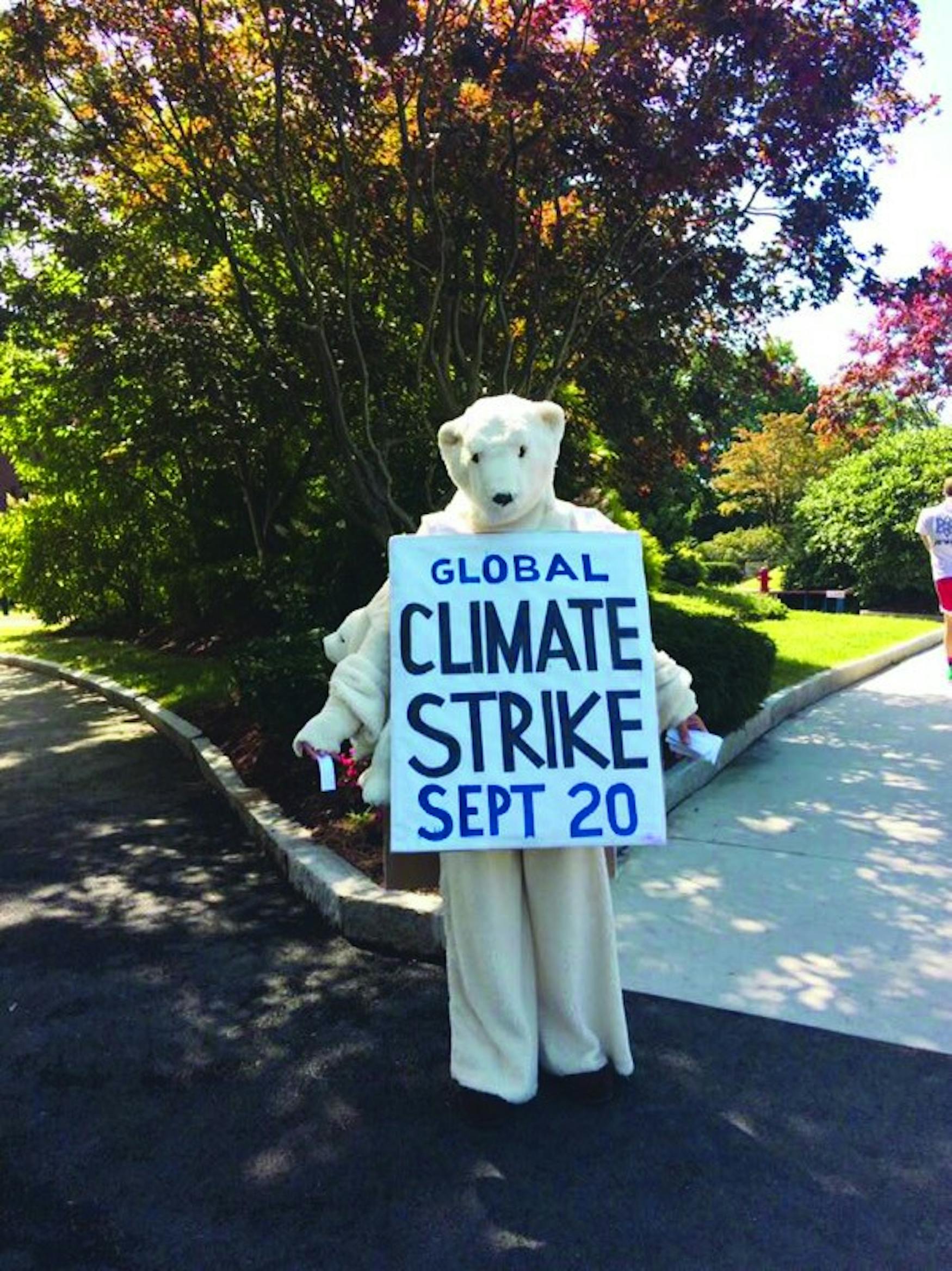Campus activists prepare for upcoming climate strike
Several Brandeis students, faculty and organizations are planning to participate in Friday's climate strike.
Brandeis students will join millions of other activists in walking out of classrooms and workplaces on Friday as part of the Global Climate Strike, an international call for climate justice. Attendees will include members of Brandeis Climate Justice, a coalition dedicated to pressuring the University administration to divest from fossil fuel stocks, as well as promoting climate education and activism, including direct action like the strike.
The strike is part of a growing movement for “a rapid energy revolution,” according to Global Climate Strike’s website, and will take place on Sept. 20, three days before the United Nations emergency climate summit in New York, followed by a second strike on Sept. 27.
In a Sept. 13 interview with the Justice, BCJ member Jessica Kinsley ’20 defined climate justice as “tackling the systemic causes of climate change in a just and sustainable way” that is mindful of the indigenous and marginalized communities who “bear the largest burden in the climate crisis despite contributing the least to climate change.”
According to a report released by the Intergovernmental Panel on Climate Change, a scientific body of the United Nations, disadvantaged groups are disproportionately affected by climate change, and that limiting global warming to 1.5 degrees Celsius “could reduce the number of people both exposed to climate-related risks and susceptible to poverty by up to several hundred million by 2050.” In more than three thousand counties, however, temperatures have already increased by 2 degrees Celsius, including seventy-one counties in the United States, according to an analysis by the Washington Post.
As with most direct action, getting attention and disrupting business as usual are some of the most immediate goals. The expected media attention surrounding the strike could help raise awareness for divestment “as a method of institutional change that people are often unaware of,” Kinsley said.
“The only time radical change has become possible is when a significant number of people went to the streets,” Prof. Sabine von Mering (GRALL, WGS, ENVS) said in a Sept. 13 interview with the Justice, emphasizing the importance of widespread awareness and participation in climate activism. Von Mering is the co-founder of Brandeis Faculty Against the Climate Threat and the Mandel Working Group on climate change. She also teaches a course on the European perspective on climate change and works as a coordinator with statewide movements such as 350 Massachusetts, a statewide climate justice movement.
According to von Mering, climate change should be everyone’s top priority, and solutions to the crisis will require skills from across disciplines, such as creativity, innovation and knowledge of history and international relations.
Prof. von Mering entreated everyone to take part in the Global Climate Strike, citing a goal of 10,000 student participants. “I hope my colleagues cancel their classes next Friday and encourage their students to go downtown,” she said.
16-year-old Swedish student Greta Thunberg launched the student-led climate strike movement in August 2018 when she spent every school day for three weeks sitting outside the Swedish parliament to demand governmental policy on climate change. Thunberg’s actions led to the creation of #FridaysForFuture, an online platform that has connected young climate strikers around the globe, which was in turn the inspiration for the strike. The Global Climate Strike was organized by “a broad coalition of groups, NGOs, unions and social movements” in response to a call to action from Thunberg and fellow activists that waspublished in The Guardian in May.
Climate strikers are calling for governmental policy to create a pathway to keep global warming within 1.5 degrees Celsius of pre-industrial levels. According to the IPCC report, limiting global warming to within 1.5 degrees Celsius would significantly mitigate the effects of climate change, which include extreme heat, heavy precipitation, droughts and rising sea levels, as well as detriments to biodiversity and human livelihood. “Future climate-related risks would be reduced by ... far-reaching, multilevel and cross-sectoral climate mitigation,” such as reaching net-zero carbon emissions by 2050, the IPCC reported.



Please note All comments are eligible for publication in The Justice.